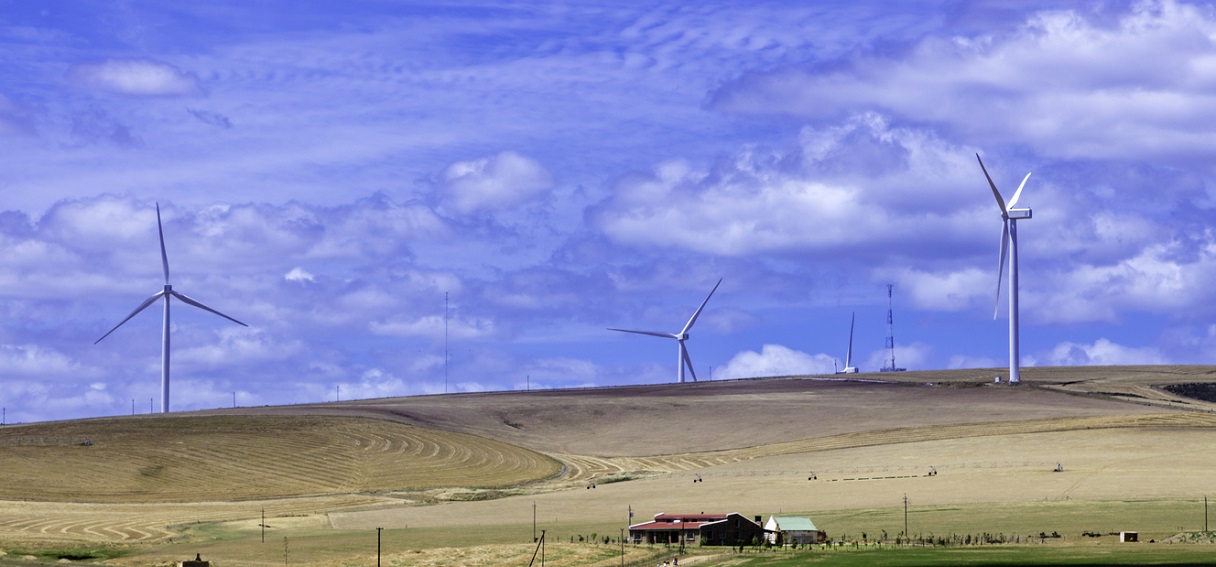
LSBU students reach the final six in national finals competition
Two teams of LSBU first year students were selected for the 9th annual National Finals of the Engineering for People (EfP) Design Challenge hosted by Engineers Without Borders UKTwo teams of LSBU first year students were selected for the 9th annual National Finals of the Engineering for People (EfP) Design Challenge hosted by Engineers Without Borders UK. In 2019/20, the competition reached over 7,000 students from 38 different universities in the UK, Ireland, South Africa and the USA. The award-winning challenge prepares students, the engineers of the future, to become globally responsible engineers by solving real-world problems.
Presenting to a panel of esteemed judges, two groups of first year LSBU students were shortlisted to pitch their innovative concepts to solve engineering problems faced by residents in Makers Valley, Johannesburg, South Africa.
LSBU’s Damion Sutherland, Asiya Warsame, Trayche Cholakov and Shovon Hossain, students on the BEng (Hons) Electrical and Electronic Engineering and BEng (Hons) Electronic and Computer Systems Engineering course, secured their place in the semi-final for their innovative sustainable public toilet that does not rely on the inconsistent energy or water supplies in Maker Valley. The concept incorporates the use of a solar photovoltaic system, with batteries, to power pumps that tap into a ground-water source. This allows the design to operate independently of the inconsistent grid and central water systems. The use of a modern septic tank solution also allows the concept to avoid connecting to the ageing and leaking sewer infrastructure.
LSBU’s Luke Alderson, Ryan Allinson, Joshua Martin and Danny Walker, students on the BEng (Hons) Electrical and Electronic Engineering (Apprenticeship) course, secured a place amongst the final six groups for their low-cost, lightweight and fish-friendly hydroelectric turbines to help to supplement local energy supplies. The design solution is a small, waterborne hydroelectric turbine that could be manufactured from waste plastics produced in Makers Valley. Located in the Jukskei River which runs through the length of Makers Valley, using an anchor and a floatation device the turbine would be lightweight enough so that many could be produced and situated along the river, producing more energy than a single turbine could. The turbine would be housed in a lightweight plastic cage, to protect fish from the rotating blades, without compromising their rotational velocity.
The judges at Engineers Without Borders UK, commented: “The judges appreciated the team's consideration of ownership of the turbines within the community and the identification of local companies to ensure continued use and upkeep. The solution incorporates school workshops, which are a great and proven concept with successful outreach programmes working with schools in recyclable materials and providing alternative careers (Timbuktu in the Valley). The simplicity of the turbines was highlighted as a hugely attractive feature, made from recycled material which can be easily replaced/fixed by the community if damaged."
Luke Smith, Engineering Programme Manager at Engineers Without Borders UK, added: “We would like to thank LSBU students for all their hard work during the Engineering for People Design Challenge! It did not go unnoticed as two designs made it to the top 37; with one team making it to the top six out of the 1,025 teams who participated from the UK and Ireland. This is a fantastic achievement and something to be incredibly proud of.”
Danny Walker, first year LSBU student, said: “The way the Engineers Without Borders challenge is run, and the fact it’s based on a real area and real problems made it all the more gratifying knowing that our idea has potential to help make a difference. We now see engineering as something more than just gaining knowledge, but as a tool to help create a better world for all to live in. As a group of apprenticeship students working full time jobs we have surprised ourselves on how far we have come in the competition and it shows that if you put your mind to something you can go far within engineering or any other field.”
Alessio Corso, LSBU’s Senior Lecturer in LSBU’s School of Engineering, said: “I am filled with an enormous sense of pride for what our students have achieved. It is striking how far they have taken on concepts surrounding sustainability and climate issues to produce two such meaningful, innovative and thought-proving solutions. Climate change and sustainable development aren’t standalone subjects, since these issues impact everything that we do as engineers and designers. LSBU integrates a unified approach to these subjects across our courses which really resonates how enormously important they are to the future. Our students’ projects demonstrate that overcoming real-life challenges is where the most significant engineering occurs.”
Find out more about the School of Engineering.